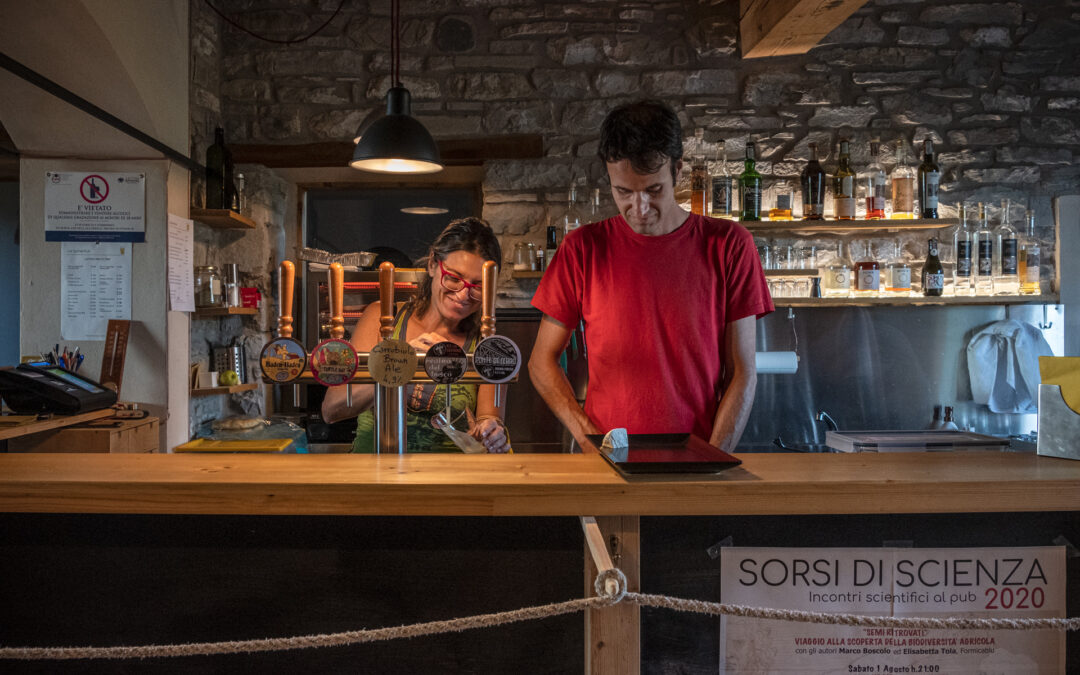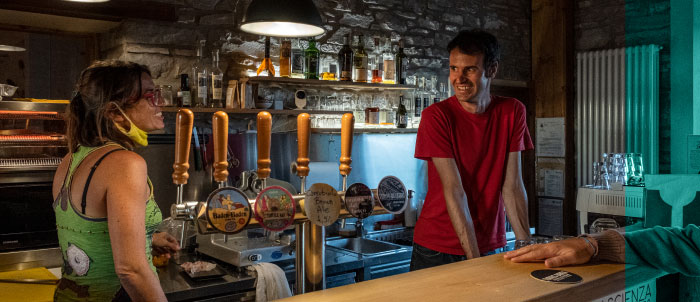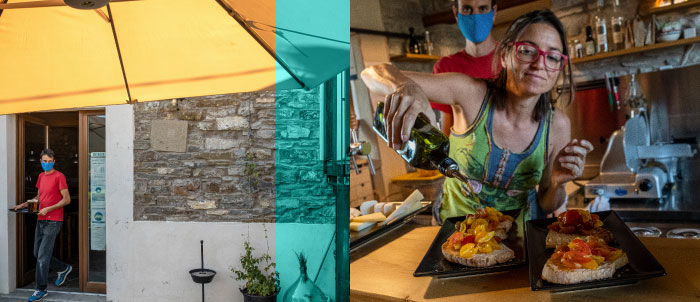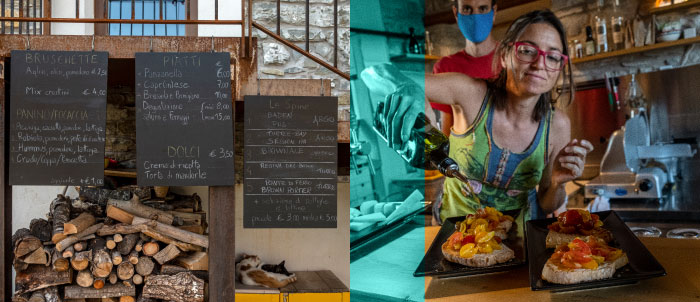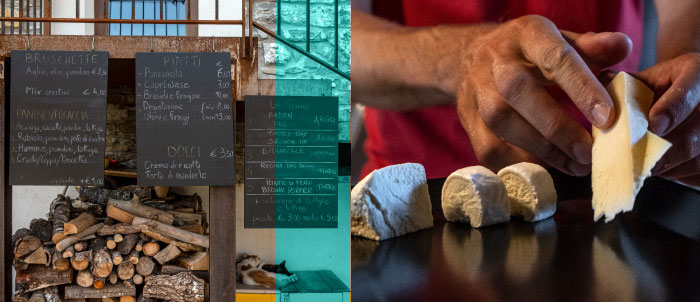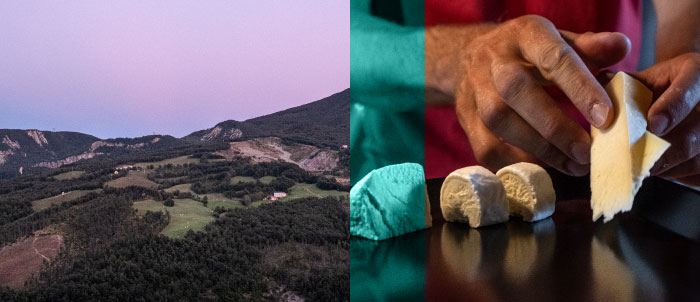LE SPINE
BUSINESS: Le Spine Pub + B&B
ADDRESS: Località Cavazzola n. 73, SS 62, Berceto (Parma), Italy
EMAIL: lespine.info@gmail.com
WEBSITE: Le Spine
“ON CAMPUS” COURSE: ReStartApp 2015
Ours is not just an entrepreneurial project, it is a life choice. When we arrived in Berceto, we had been looking for years for a place that would not be too isolated to start a hospitality business linked to craft beer. ReStartApp gave us the push we needed to make our dream come to life”
Giulio Zucchetti
The terrace at pub Le Spine looks over the valley carved by the torrente Baganza. As they sit at their table, patrons enjoy views of the Tuscan-Emilian Apennines to the East. “When we bought the building, this space did not exist. We created it with the renovation and I think it was one of the best choices we have made” says Giulio Zucchetti, as he sits down after serving a pint of craft beer to three bikers.
Born in Crema, he came to Cavazzola, – a tiny hamlet in the municipality of Berceto (Parma) – in 2016. Before then, he had lived in Milan and Lodi: “This is not just an entrepreneurial project, it is a life choice” he says. A choice that also involves his partner, Michaela (Mica) Settimo, and little Leo, who was born in May 2014. “He went to a nursery school in the woods, and for the year 2020-2021 he is attending the Selva Castello Primary School: for the first time in years, the number of children at the school is growing – there are two multi-grade classes instead of just one, with one class combining the first two years and the other combining the last three years” notes mum Michaela.
Multi-grade classes
The Italian Treccani encyclopaedia explains that, when it comes to primary schools, the term multi-grade class is used to refer to a situation where “different school grades are combined into one class – as each grade only comprises very few children – and are taught simultaneously by a single teacher”. According to the encyclopaedia website, however, this happened mostly in the past, while nowadays it is a rare occurrence. This is not the case, as shown also by the efforts made by the Italian Ministry for Education, through the Istituto Nazionale di Documentazione, Innovazione e Ricerca Educativa (Italian National Institute for Educational Documentation, Innovation and Research), which, with its project “Piccole Scuole” (Small Schools), works to identify the specific characteristics and peculiarities of multi-grade classes and turn them into a positive. The Manifesto of “Piccole Scuole” reads: “Building on differences, tailoring learning to the pace and characteristics of each pupil, promoting organisational flexibility through forms of shared learning that foster cooperation and inclusion, multi-grade classes – an extreme model that is nevertheless common in marginal areas – can be an occasion to develop new curricular approaches that make the most of an open teaching context, enriched through activities that are linked to the local territory and community and strengthened through learning environments that are extended via virtual networks. A space in which to experiment learning solutions that are based on the unitary and transversal character of knowledge. Multi-grade classes are opportunities to draw value, as they allow to develop teaching approaches and organisational methods that can be extended to larger contexts”.
Leo was only small when his father (who was born in 1982) registered with ReStartAlp in 2015: “At that time, we had been ‘scouring’ the Emilian Apennines for a few years, searching for a place that would not be too isolated to become our home. We had a clear idea of what we wanted to do: working in hospitality and making craft beer. We started with the Bologna province, then Modena and eventually Reggio Emilia, and here we are” explains Giulio. “We dreamt of a house in the woods, but we ended up on a state road” adds Mica.
Indeed, Cavazzola is a group of houses along the SS 62 della Cisa, state road, which, up to the Seventies, was the main artery connecting the Tyrrhenian area (it starts in Sarzana, in the province of La Spezia) and the Po Valley (it ends near Verona, after crossing Parma and the Mantua province). Providing additional testimony to the vocation of the Apennines as a land of passage: “We are also on the via Francigena” remarks Mica. After Berceto, some twenty kilometres from Le Spine, is the Passo della Cisa,pass, over one thousand metres above sea level, marking the border between Emilia-Romagna and Tuscany and leading down to Pontremoli , in the province of Massa-Carrara.
